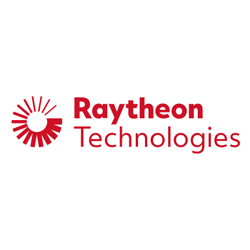3 Ways Big Data and IoT Can Improve Our Health in 2016
- by 7wData

Just a few years ago, Big Data and the Internet of Things (IoT) were terms generally unheard of. In 2016 they are set to revolutionise technology and the ways in which we acquire and process data, but what do they mean for the healthcare industry?
Xenon Health describe IoT as ‘a phenomenon through which the operational aspects of the physical world become increasingly integrated with digital platforms, enabling information to move seamlessly toward the computational resources that are able to make sense of it.’
Essentially, IoT goes hand-in-hand with the ‘mobile age’ and the diversity of data that is currently being retrieved from agile and mobile locations.
Big Data is a related concept – it addresses the ever-increasing amounts of data that are created every second of every day and recognises that these figures will only continue to grow. Domo provide a useful infographic that explains the ‘social media minute’: every single minute, for example, 277,000 tweets are sent, Whatsapp users share 347,222 photos and Google receives over 4,000,000 search queries!
These figures are remarkable even for those of us caught up in the social media hype, and most shocking of all is the realisation that the global internet population now represents 2.4 billion people. That’s a lot of people creating a lot of data – the question now is how we can utilise this data in a meaningful way.
IoT has revolutionised many industries and will continue to do so in the foreseeable future, but what about healthcare? Organisations within this industry tend to adopt new technologies slowly, relying upon solid evidence and demonstrable impact and efficiency before committing to any such change. The shift towards IoT is, however, beginning to take place, and increasing amounts of available patient data are beginning to inform decision making processes within this sector.
What will this mean for the future of our health?
This change in attitude towards the way patients are managed has been making national headlines for the past couple of years, particularly with the implementation of Simon Stevens’ Five Year Forward View for the NHS in England which hopes to reduce preventable cases of illness such as diabetes and cancer before they become incurable.
According to Forbes, the power to access and analyse enormous data sets ‘can improve our ability to anticipate and treat illnesses. This data can help recognise individuals who are at risk for serious health problems. The ability to use big data to identify waste in the healthcare system can also lower the cost of healthcare across the board.’
This is relevant not just in the US, where the costs of healthcare are a constant source of contention, but also in the UK where the NHS is under strict financial pressures. If we can reduce the number of patients admitted to hospital, the costs spent on these admissions will be directly reduced and the money can be spent where it’s most urgently needed.
On top of these immediate, local benefits, the rise of Big Data in healthcare organisations can be used to ‘predict epidemics, cure disease, improve quality of life and avoid preventable deaths. With the world’s population increasing and everyone living longer, models of treatment delivery are rapidly changing, and many of the decisions behind those changes are being driven by data.’
The big push for healthcare organisations will be to understand as much about their patients as possible in order to be warned of any impending symptoms or hereditary factors that could result in serious illness. If armed with enough data, as will be possible in the near future, warning signs of serious illness can be seen early enough that treatment is more simple if not altogether avoidable.
[Social9_Share class=”s9-widget-wrapper”]
Upcoming Events
Evolving Your Data Architecture for Trustworthy Generative AI
18 April 2024
5 PM CET – 6 PM CET
Read MoreShift Difficult Problems Left with Graph Analysis on Streaming Data
29 April 2024
12 PM ET – 1 PM ET
Read More




